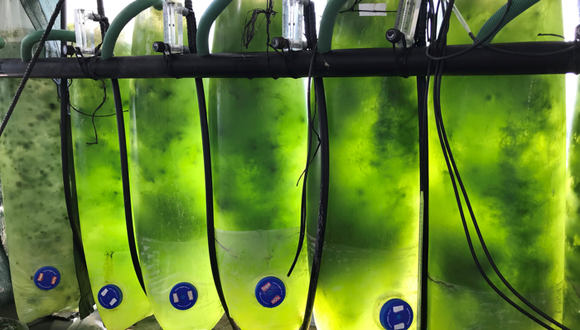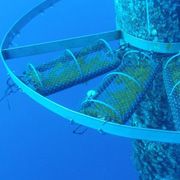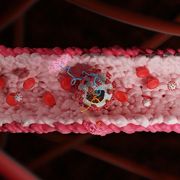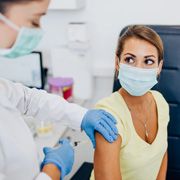Seaweed – A Promising Defense Against Covid-19
Natural substance from marine algae prevents infection
The lack of access to Covid-19 vaccines results in the deaths of many people and even accelerates the development of new variants. Researchers from Tel Aviv University, led by Prof. Alexander Golberg of the Porter School of the Environment and Earth Sciences, have found that a substance called ‘ulvan’ extracted from edible marine algae prevents the infection of cells with the coronavirus.
The researchers believe this affordable and natural material may help solve serious problems, such as the spread of the coronavirus in large populations, especially in developing countries with limited access to vaccines. The study is still in its early stages, but the researchers are hopeful that the discovery will be used in the future to develop an accessible and effective drug to prevent coronavirus infection.
Affordable Solutions Needed
Prof. Golberg explains: "It is already clear today that the coronavirus vaccine alone, despite its effectiveness, will not be able to prevent the global spread of the pandemic. As long as the lack of access to vaccines remains unaddressed for billions of people in underprivileged communities, the virus is expected to develop increasingly more variants, which may be resistant to vaccines – and the war against the virus will continue.”
“It is very important to find affordable and accessible solutions to suit even economically weak populations in developing countries. With this aim, our lab tested a substance that could be extracted from a common seaweed. Ulvan is extracted from marine algae called Ulva, an edible ‘sea lettuce’ common in places like Japan, New Zealand and Hawaii,” he adds.
Golberg explains that his lab’s rational for exploring the potential use of ulvan for coronavirus defenses was motivated by previous discoveries of its effectiveness in preventing plant viruses along with some human viruses.
Successful Prevention Against Covid-19
To test their hypothesis, the TAU researchers grew Ulva algae and extracted the ulvan from it before sending samples to the Southern Research Institute in Alabama, which deals with infectious diseases. The US researchers built a lab model to test the activity of the substance produced by Prof. Golberg's team. The cells were exposed to both the coronavirus and the ulvan. It was found that, in the presence of ulvan, the coronavirus did not infect the cells. As opposed to extracts from other algae tested, the substance demonstrated success in preventing coronavirus infection.
According to the researchers, "The substance was produced in raw production, meaning it is a mixture of many natural substances, and we must find out which one is responsible for preventing cellular infection. After that, we will have to examine how, if at all, it works in humans."
The research team consisted of Shai Sheffer, Arthur Robin and Alexander Chemodanov from Dr. Golberg's laboratory, Prof. Michael Gozin from the School of Chemistry and the Tel Aviv Universicy Center for Nanoscience and Nanotechnology. They collaborated with researchers from the Hebrew University, the Meir Medical Center in Kfar Saba, and the Southern Research Institute in Alabama, USA. The article was published in the journal PeerJ.






